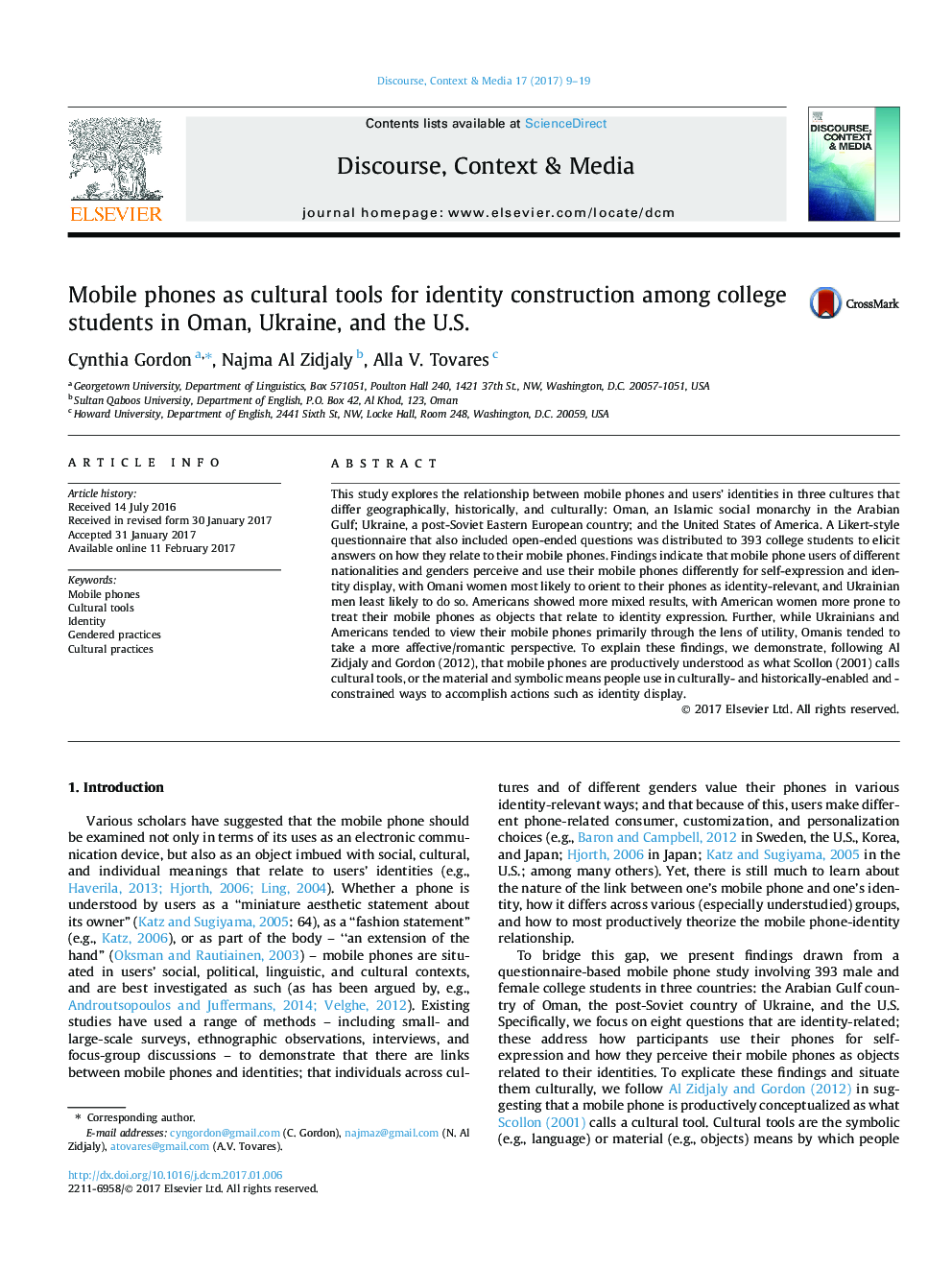| Article ID | Journal | Published Year | Pages | File Type |
|---|---|---|---|---|
| 5123977 | Discourse, Context & Media | 2017 | 11 Pages |
â¢Mobile phones are productively understood as cultural tools.â¢The link between mobile phones and identity is influenced by culture and gender.â¢Omani college women overwhelmingly orient to their phones as identity-relevant.â¢Ukrainian college men generally do not view their phones as identity-relevant.â¢American college women, more so than men, treat their phones as identity-relevant.
This study explores the relationship between mobile phones and users' identities in three cultures that differ geographically, historically, and culturally: Oman, an Islamic social monarchy in the Arabian Gulf; Ukraine, a post-Soviet Eastern European country; and the United States of America. A Likert-style questionnaire that also included open-ended questions was distributed to 393 college students to elicit answers on how they relate to their mobile phones. Findings indicate that mobile phone users of different nationalities and genders perceive and use their mobile phones differently for self-expression and identity display, with Omani women most likely to orient to their phones as identity-relevant, and Ukrainian men least likely to do so. Americans showed more mixed results, with American women more prone to treat their mobile phones as objects that relate to identity expression. Further, while Ukrainians and Americans tended to view their mobile phones primarily through the lens of utility, Omanis tended to take a more affective/romantic perspective. To explain these findings, we demonstrate, following Al Zidjaly and Gordon (2012), that mobile phones are productively understood as what Scollon (2001) calls cultural tools, or the material and symbolic means people use in culturally- and historically-enabled and -constrained ways to accomplish actions such as identity display.
